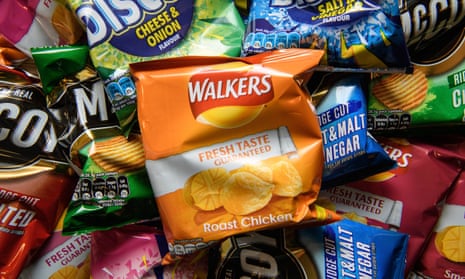Selling high calorie foods in plain packaging could help in the battle against obesity according to a leading researcher who has won a share of the most lucrative prize in neuroscience for his work on the brain’s reward system.
The colourful wrapping and attractive advertising of calorie-rich foods encourage people to buy items that put them at risk of overeating and becoming obese in the future, said Wolfram Schultz, a professor of neuroscience at the University of Cambridge.
“We should not advertise, propagate or encourage the unnecessary ingestion of calories,” Schultz said at a press conference held on Monday to announce the winners of the 2017 Brain Prize. “There should be some way of regulating the desire to get more calories. We don’t need these calories.”
“Colourful wrapping of high energy foods of course makes you buy more of that stuff and once you have it in your fridge, it’s in front of you every time you open the fridge and ultimately you’re going to eat it and eat too much,” he added.
Schultz shares the €1m prize from the Lundbeck Foundation in Denmark with professors Peter Dayan, director of the Gatsby Computational Neuroscience Unit at UCL, and Ray Dolan, director of the Max Planck UCL Centre for Computational Psychiatry and Ageing. Together, the scientists unravelled how the brain uses rewards to learn and shape behaviour.
Thirty years ago, Schultz was studying neurons in the brain that release a chemical messenger called dopamine. He found that when animals were given a reward in the form of fruit juice, the neurons fired in appreciation.
But further experiments revealed the brain’s reward system to be more complex. When animals were taught to associate particular images with an impending fruit juice treat, their neurons fired on seeing the pictures instead of when the drink was taken. If no drink appeared, the reaction of the neurons gradually faded over time.
The work reveals one of the most crucial biological mechanisms ever to have evolved. For organisms to survive and reproduce they need food, drink and sex. The brain’s reward system helps the brain to learn what behaviour and resources satisfy those needs. “It’s a perfect teaching signal,” said Schultz.
While working at the Salk Institute in California, Dayan realised that the signal produced by the dopamine neurons was equivalent to what artificial intelligence researchers had long called a “reward prediction error”. The signal is a measure of the gap between what is expected and what actually happens and is high when an outcome is much better than expected. It forms a critical part of the neural machinery that is needed to make good decisions.
Dolan, who uses brain imaging to understand the roots of human emotion, learning and decision-making, showed that the prediction error signal was important not only for learning about rewards and punishments, but for understanding the preferences of other people. He went on to describe how happiness depends not on how life is going, but on whether it is going better than expected.
The scientists’ research has thrown fresh light on mental disorders, including Parkinson’s disease, which is caused when dopamine neurons steadily die off in various parts of the brain. From the age of 30 onwards, people typically lose about 10% of their dopamine neurons every decade. The loss of too many neurons leads not only to movement problems found in Parkinson’s, but changes in the ability to learn and make decisions.
People diagnosed with Parkinson’s often receive drugs to boost their dopamine levels. These can help to restore normal movement and, in early stage disease, improve cognition. But some patients experience dramatic side effects that lead them to become compulsive gamblers or shopaholics. Research on the reward system suggests this is because the higher dopamine levels enhance the reward sensations. Dolan, who has treated patients with Parkinson’s disease, said he knew many who had lost their savings after become gamblers on dopamine-boosting drugs.
The scientists will be presented with the prize on 4 May in Copenhagen by Crown Prince Frederik of Denmark. Dayan and Dolan said they have yet to decide what to do with their share of the prize money, but Schultz said he planned to take some holidays that had previously been beyond his means.

Comments (…)
Sign in or create your Guardian account to join the discussion